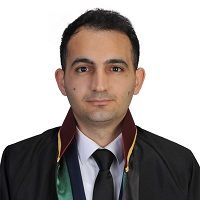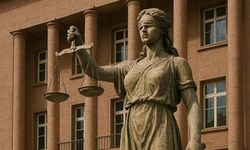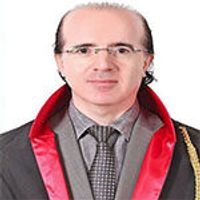Public figures as an entity have submitted their life and substance to the general population and infringements of that right are often overlooked. However, with the recent media coverage over Taylor Swift’s fan who she claims he infringed upon her right to privacy by tracking her flight records[1], this made me question how with the introduction of social media and the public figures becoming more political or environmental, for example, correlates to violations of privacy.
Within the convention of human rights, article eight states that all should have a right to privacy[2], although when you implicate a substitute of this right by pursuing a life and/or career within the scope of fame it is hazy where violations of privacy become too extreme.
This has been extensively covered already by various scholars, one Essex Court proposes that two criteria must be met: the importance of that person within the public eye and the act itself that has come to public attention must also be of importance. This coverage proposes that the violation must only be of people who are in a position of trust within the public, specifically highlighting politicians. [3]
Despite this, the scope of public trust within this paper is flawed, as today, people within the scope of fame are more in a position of trust than ever and often advocate for political change or monetary support from followers, supporters or fans. For example, Lady Gaga or Kendall Jenner, who are held in very similar aspects to Taylor Swift, the motivation for this work, who actively advocated for Hilary Clinton’s presidential candidacy in the 2016 election.[4] This advocacy inevitably influenced people’s political views and therefore putting them in a position of public trust. [5]
In an example in Campbell v The Daily Mirror [2004][6] the test used put the person of fame in the position of people outside the public eye, this is inherently flawed also as the person implicated is not in that position and they overlook how the choice to be in the public eye is somewhat a submission of the right to privacy.
This is a complex issue and continues to become more complex with the creation and use of social media, there needs to be a more central and specific evaluation of what constitutes a true violation of privacy.
A new test that could be established could be:
A) If the person in question is of a self-induced position of public trust whether that be a specific position of implicated public trust that one knowingly accepts. The distinguishment between self-induced and a usual position of fame would either entail:
1. Representative responsibilities – One’s position entails increased morality and/or the duties and obligations of individuals who act on behalf of others or a larger group.
2. Sovereign importance - A representative of a country as someone who represents it politically or socially. (Does not apply to citizens of that country but anyone who actively represents it)
B) Whether the information is necessary and in public interest or unnecessarily damaging to the famous.
1. ‘Public interest’ constitutes to clause A.
2. The information itself must be relevant to the position and scale of ‘trust’ of the famous.
C) The disclosure of negative news being morally just and reported as news that concerns the public and not disclosed unnecessarily with intention to harm the private life of the reported.
1. All news about the celebrity shall be unbiased and projected in a way as to inform the public on matters of public interest, not to be presented in a way that can be considered outweighed by targeting the celebrity’s privacy.
- In clarification, the media that is disclosed cannot be malicious itself, but the wording or portrayal of the media could only be established as ‘targeting privacy is outweighed.’
- Any violation of how the media was projected shall be deemed a privacy violation.
The presentation of oneself as a role model or putting themselves in a manner that is deemed of public trust then this should be constituted as a waiver of their right to privacy of matters that they present themselves to said public. The uncondoned trust by the public upon them cannot constitute a waiver of these rights. The self-publicity of oneself being charitable or idealistic for their following must institute an enabling of juxtaposing actions that shades doubt on this persona and must be allowed to be presented to the public. If public figures have created an expectation with the public, they should be obligated to endure negative news about them, with the acceptance of that their actions adapted to a concern of the public.
Another issue is that acknowledging the right to privacy is a fundamental human right which is accepted as a general rule and being a famous is an exception, favouring the attenuation of the right, leading us to the reasoning that the public interest condition in the test must be interpreted narrowly. The distinction there to be made between what is public interest and what is interesting to the public as the former points out the satisfaction of the objective criterion while the latter indicates a subjective approach that allows for broad interpretations which need to be avoided.
This would help in resulting in positive outcomes for both the famous and the public for the purpose of re-establishing the balance of interests, as the public would gather relevant information that may impact their view of the famous as well as the famous would be protected in matters that were insignificant and matters that were not relevant to the famous’ character.
To put this test into practice, in Ferdinand v MGN Ltd, where the claimant sued with basis that he had his right to privacy violated, Ferdinand was in a position of self-induced public trust as he was a contender for English captaincy.[7] This highlighted how his personal life was of public interest and eligible to be reported about, as such our proposed test identifies Ferdinand in a self-induced position of public trust because of his sovereign importance and thus his private life is of public relevancy and in his position of English national team forfeits his right to privacy in undergoing the implicated responsibilities that come with his roles.
In another example of the usage of this test would be in cases such as JK Rowling v (D)[8] the court found that it was a violation of her and her family’s privacy. With the application of our test, the same conclusion is found as she is not in a self-induced position of trust, the media presented is not relevant to her public persona nor displays sufficient public interest and in fact is unnecessarily damaging to her private life, the privacy of her family life in this instance outweighs the public interest of her family in this matter. This affirms that the test is adequate in providing security and protection of the right to privacy for the famous as we can see from this example, the content which has been disclosed failed under the application of all three levels of the test.
The test as a construct would differentiate the scale of trust a famous possesses and what would be deemed reasonable as public knowledge from the famous’ private life. This test would establish more privacy for the famous who do not act in a way that is a contrast to their persona, as well as keep the public informed about people in positions of public trust that may shape their political or ideological views. Additionally, the test extends to the protection of privacy from negative media narratives and portrayals, by applying the prohibition of 'targeting privacy is outweighed'.
Av. Alperen Oğuz ÇETİN

Charlie MANTELL
------------------
[1] “Jack Sweeney, the Florida college student known for using public information to track the flights of private planes owned by billionaires, celebrities and politicians, says Taylor Swift’s lawyers sent him letters threatening legal action in December over his accounts that tracked her plane’s flights.” – Forbes, James Farrell [2024]
[2] European convention on human rights (ECHR S.1 A.8) [1953] “Everyone has the right to respect for his private and family life, his home and his correspondence”.
[3] “Two central criteria should guide the process. First, the public importance (and not merely prominence) of the person in question. Famous people who hold no position of public trust or authority should have a right to privacy for all but criminal actions, because the mere satisfaction of public prurience cannot outweigh their claims to a private life. For politicians and other officeholders, the public importance attached to their character will justify rather more intrusion. But this cannot give the press carte blanche. So, secondly, the act as well as the actor must be of public importance.” -Should people in the public eye have a right to privacy? [2009] One Essex Court, their criteria for the information of a famous being a violation of their rights.
[4] “History by @hillaryclinton. #MadeForHistory #ImWithHer @voguemagazine.”- a social media post from Kendall Jenner in 2016 displaying her support for the presidential candidate to her tens of millions of fans and followers.
[5] https://www.ftc.edu/how-celebrity-can-influence-politics/ - an article that explicitly references how people in positions of public interest and popularity have influence over political candidates and voters. Five Towns College, [2020]
[6] “The broad test is whether the disclosure of the information about the individual ("A") would give substantial offence to A, assuming that A was placed in similar circumstances and was a person of ordinary sensibilities.” Lord Hope [2004] UKHL 22
[7] [2011] EWHC 2454 (QB)
[8] A media outlet taking and subsequently the publication of a photograph of JK Rowling’s infant child, Rowling sued under a violation of article 8 for her and her family’s privacy and family life. [2008]





















